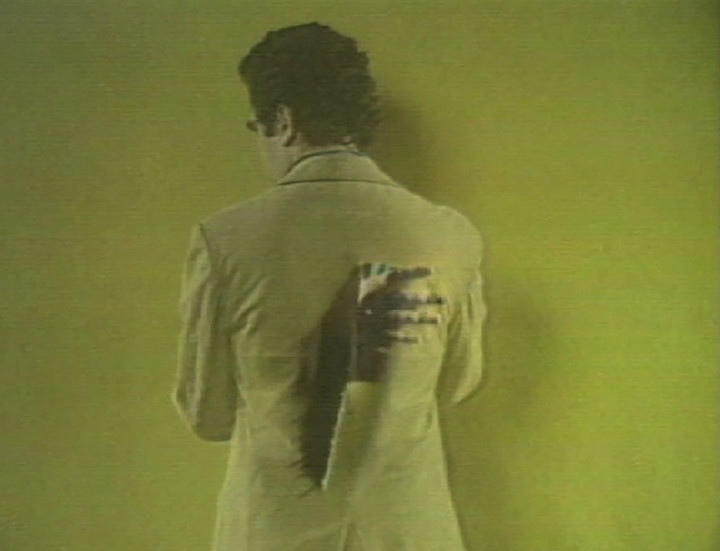Peter Campus’s first major retrospective in France, “Video Ergo Sum,” presents a selection of video works beginning in the early 1970s and including his most recently commissioned project in ultra-high-definition. In his now-classic video Three Transitions (1973), Campus utilized chroma key postproduction to alter the rules of perception and invert the medium’s claims to objective reality.
Exploring the duplicity of the interior subject and exterior object, he pursued phenomenological experiments and questioned the fragmentation of the self until incandescence.
Depicting a perpetual struggle between essence and appearance, his first video works used live transition to probe interactivity. In Kiva (1971) the camera, situated above a video monitor, is focused on two suspended double-sided mirrors in constant motion, thus producing a perpetually mobile image of the viewer’s reflection. In this early closed-circuit film, one that plays back the image of the viewer, the televised image becomes an evanescent doppelgänger of the spectator.
During the 1980s Campus began to shift his attention away from interiority and the body and toward nature and the external world. Meditative monochrome images of stones proliferate in Murmur, Transient, Half-life, and Inside Out (all 1987). Enlarged and projected in a darkened room, they call to mind recent theories of object-oriented ontology — against the privileging of human over object — and Trisha Donnelly’s mute hermetic formalism.
Moving finally into digital photography and video, his last body of work is less obviously infused with confrontation (with himself or the spectator) than with a contemplative tonality. In the latest project, commissioned by Jeu de Paume, Convergence d’images vers le port (2017), static shots of a seascape are recorded in 4K, immersing the spectator in an atmosphere that intersects Corot and Michael Snow — somewhere between a distant cinematic structure and a pre-Impressionist pastoralism.


